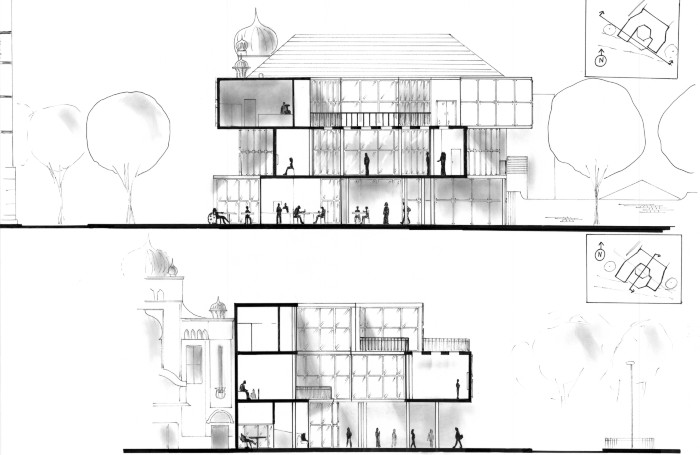If you are a student who was set to sit GCSEs or A levels this summer, the news that the government was cancelling public examinations must have triggered mixed emotions: relief at having the pressure of performing under exam room conditions removed, but also worry at the idea of centre grade or predicted assessments. How is it going to work? In your favour or to your detriment?
The government has assured us that the methods for arriving at these grades will be completely objective, but there are concerns it may not feel so fair when results are finally received. Although a range of evidence and data, including performance on mock exams and non-exam assessment will be used, performance at A level is difficult to reduce to arithmetic averages. Often a subject becomes clearer the longer you study it, and an understanding emerges towards the end of the year that wasn’t there earlier.

Like many students, you will probably have applied to the schools of architecture that you feel suit you best, and submitted portfolios in support of your application. You will, though, now be concerned that your centre-graded A levels will not give you sufficient UCAS points to get you into your first choice of university. However, it must be remembered that schools of architecture will be keen to start the academic session in September with a full cohort of students; in economic terms, universities will be as badly affected by the health crisis as any other organisation, and want to operate in autumn with normality. The government has announced that numbers in UK universities will be capped to avoid some schools over-recruiting new students to the detriment of others – but schools will also be losing some international students wishing to study in the UK, who are now restricted by their home country from travelling or have reservations about the UK health situation.
It’s helpful to consider whether you can turn these dramatic changes into an opportunity. Architecture is a popular subject, and there is usually strong competition for places, but the health crisis will influence numbers starting architecture in September.

If you’re planning to apply (or have already applied) to a school of architecture, it’s likely you’ll have a wide range of interests which will be reflected in your choice of A levels. Most architects have eclectic tastes and very different skills; this explains why the subject is always evolving. It is also why many schools ask you to provide a portfolio of your work to support your application to a school. While some schools determine entries to their programme only on A-level grades, others like to see how a student thinks visually, so the strength of a digital portfolio can strongly influence the outcome of a UCAS application.
You might consider strengthening your application in several ways:
- By submitting a digital portfolio
If your entry to a school is by your A-level grades only, ask if you can submit material supporting your application in a digital portfolio. Assuming the school agrees, remember this folio should emphasise your visual skills and passion for architecture. Drawings, photographs, sketches, and any other material which shows your interest in different buildings – and how you represent this in a personal way – will be useful.
However, if your entry is by both grades and a 1:1 interview with a portfolio, consider how you can improve and add to that folio. Even if you’ve already submitted material to a university, ask if you can top this up with new material; if they agree, work on this to best present yourself and your ideas. Write to the admissions offices at the universities you’ve applied to and say that you’d like to submit more work and ask for their confirmation that this will be considered. In both cases, schools may welcome your initiative as the folio tells them more about you and your skills – and makes it easier for them to provide an offer.
- By submitting a written text
If your skills lie more in the area of research, consider whether you could produce a new piece of illustrated writing, or develop something from your secondary education. You may have written about and analysed something which was of real interest to you, and backed it up with personal research. Reread and edit this so your message is clear, and add images to make it even more powerful. Again, ask the school’s admissions office if they’re prepared to accept this and if they agree, concentrate your energies on it. The piece need not even be about architecture, but should show how you think and analyse material, and develop a clear argument when writing about it.
- Preparing for video interview
Finally, if you still have a (video) interview to attend, think about why you want to be an architect and prepare how to explain this clearly, mentioning ideas in architecture which most interest you.
No one pretends the current situation isn’t upsetting or stressful, but if you want to study architecture, it’s important to think how you practically achieve this despite the obvious difficulties. Use this unexpected time at home to prepare and support your applications, and develop your knowledge about architecture to start your university education with real confidence.
For information on what it’s like to study at architecture school, see RIBA Publishing’s recent book by Neil Spiller, How to Thrive at Architecture School
David Gloster is Director of Education at RIBA









